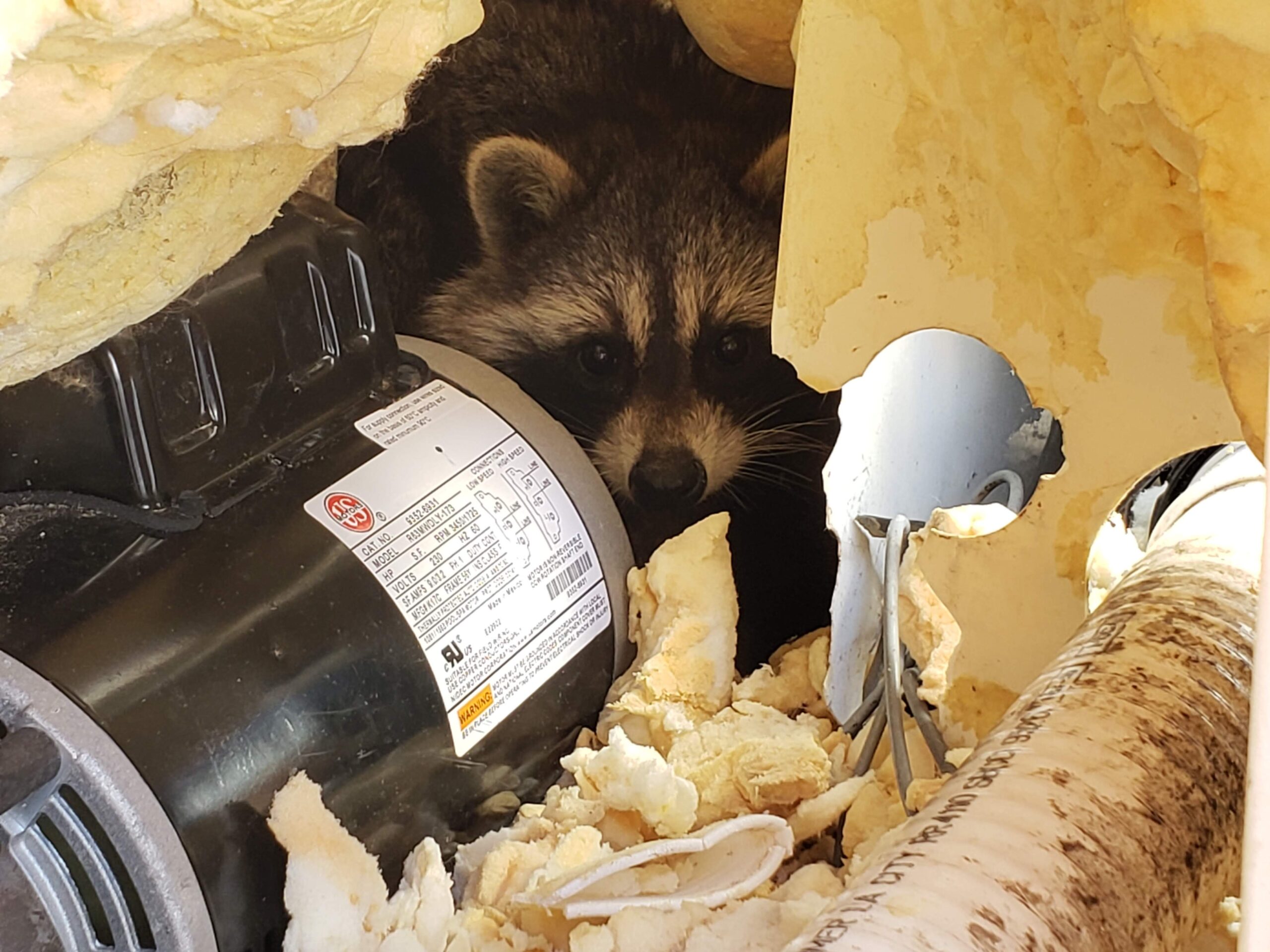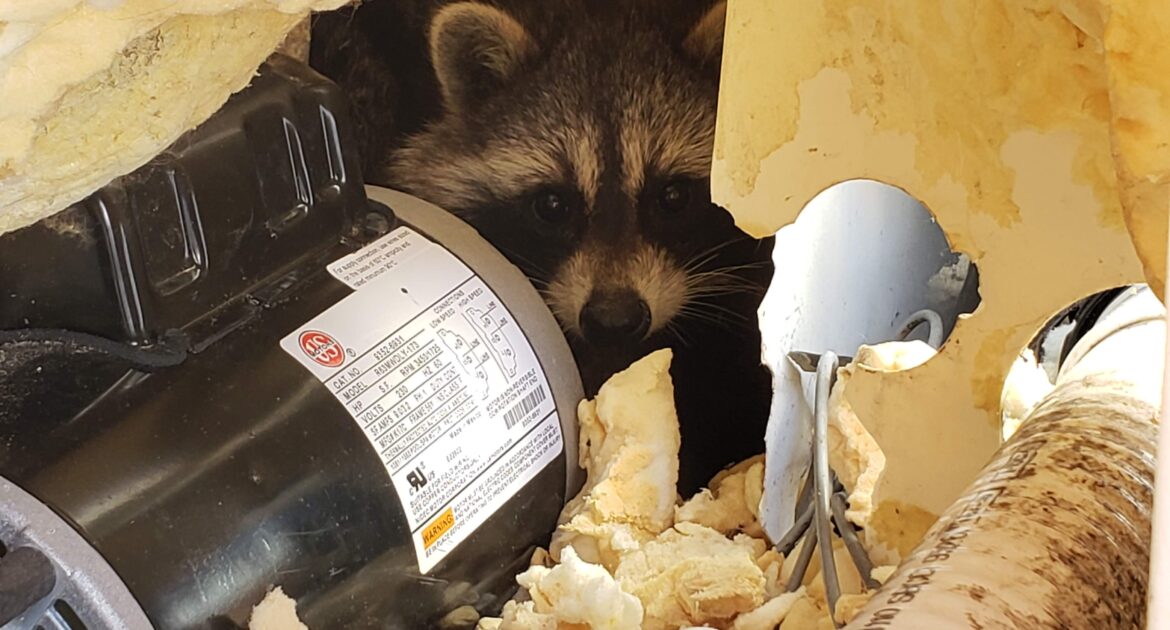While raccoons are often comfortable living close to humans, they are wild animals. Living in a natural environment exposes them to a wide range of diseases and parasites, some of which can transmit to humans or pets. Baylisascaris procyonis is a species of roundworm that lives in the intestines and is transmitted through raccoon poop. Humans and pets are susceptible to this parasite as well, and the sickness that results from it can be life-threatening.
How Is Raccoon Roundworm Spread?
Raccoons are omnivorous, meaning that they feed on both plants and animals. They are opportunistic foragers that will feed on almost anything they can get their paws on, including birds, rodents, and rabbits. Often, they become infected with roundworms by eating infected animals such as these.
The roundworms lay eggs in the intestines of the raccoons. The raccoons pass the eggs out with their feces. These may remain dormant in the soil for years under the right conditions, but within two to four weeks, they are able to infect a new host.
The risk of exposure to roundworms is greatest if you have raccoons living on your property. Raccoons do not defecate in their dens but choose a nearby spot for a latrine. If there are multiple raccoons on the property, they will all use the same latrine. Contact with a raccoon latrine increases the risk of roundworm infection.
How Common Is Raccoon Roundworm?
Infection with roundworm is extremely common among the raccoon population. Therefore, if you find a raccoon latrine on your property, the chances of it incubating roundworms are much better than otherwise.
However, it is not common for humans to become infected with roundworms. Infection requires a new host to ingest the eggs. Young children may be at greater risk for roundworm infections because they may be more likely to eat dirt or stick their fingers in their mouths after playing outside, inadvertently ingesting the eggs.
Pets are also vulnerable to roundworm infection from contact with a raccoon latrine. Dogs, especially, prefer to explore their environments with their noses and mouths and so may be at higher risk.
What Are the Symptoms of Roundworm Infection?
It may be a week after roundworm exposure before symptoms start showing up. People and pets infected with roundworms may experience enlargement of the liver, fatigue, nausea, and vomiting, or loss of muscle control. A human being may complain of an inability to pay attention or focus. Other symptoms include blindness or coma.
The prognosis for treating roundworm infection is better the earlier that treatment begins. Sickness from roundworms is serious and may prove fatal.
How Can You Prevent Roundworm Infection?
One of the best ways to prevent roundworms is with good hygiene. Wash your hands whenever you come in from outside and teach your children to do the same. Discourage young children from putting their fingers in their mouths as well as habits such as nail-biting in older children.
If you have not seen raccoons on your property, basic hygiene and habit modification are probably sufficient to protect your family from roundworms. However, if you have seen raccoons on your property, you need to take more protective steps. Search your property for evidence of a raccoon latrine. Here are some places you are likely to find one:
- Attics or roofs
- Garages
- Decks or patios
- Woodpiles
- Rocks or logs
- Bases of trees
If you find a raccoon latrine, do not allow your children or pets near it.
How Do You Deal With Raccoon Poop?
As long as raccoons remain on your property, they will keep using the same latrine. Therefore, you should make no attempt to clean up after them until the raccoons have been removed. Skedaddle technicians are trained to do this safely and humanely. We also thoroughly clean and decontaminate where the raccoons have been. Find out more about the Madison wildlife removal services we offer.




